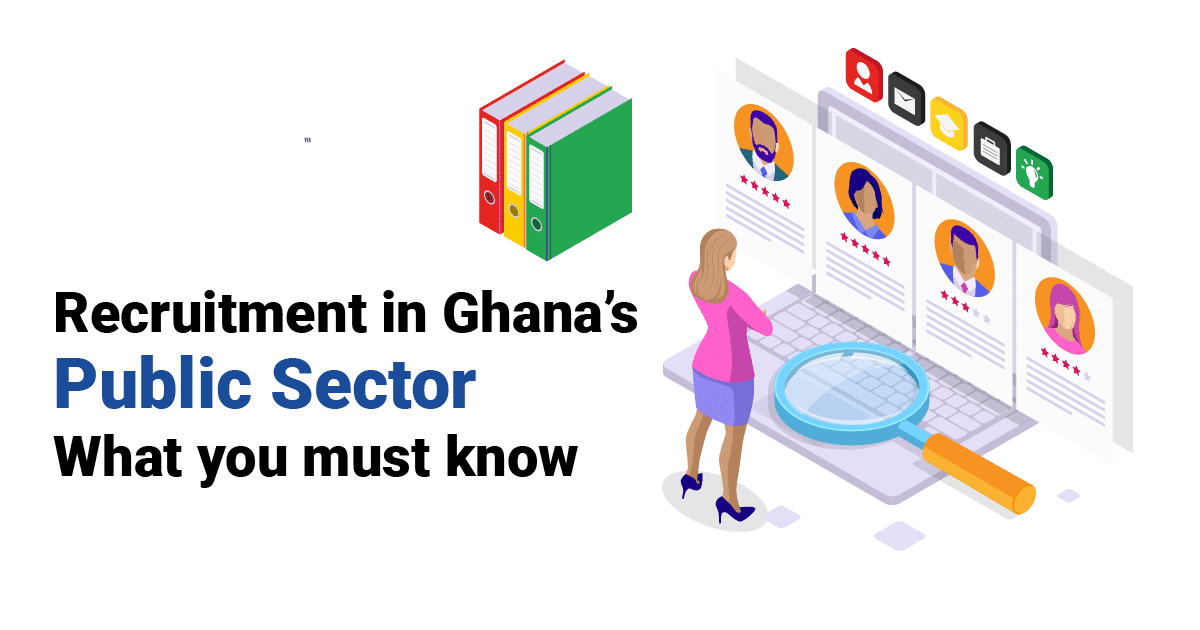Introduction
This write up will take you through the rule and rule application that has caused so much upheavals in recruitment and salary payment in Ghana’s public sector. I will use the Wa Polytechnic as a case study in the processes involved.
In our part of the world where the public sector and for that matter government is the highest employer, one cannot discuss the issue of job search without considering this window.
Indeed almost every graduate has applied for or has tried to get an engagement with the public sector in one Ministry, Department and Agency (MDA). However, the processes and procedures involved in recruitment has generated lots of challenges. These challenges emanate from rule and rule application.
Role of the public service commission
The Public Services Commission is the umbrella body that spells out rules and regulations directing human resource policy in almost all MDAs. This is because, tertiary institutions are provided for in the public services commission but has some level of autonomy when it comes to recruitment of staff.
There are laid down rules and regulations that inform tertiary education recruitment and polytechnics for the matter. As part of efforts to streamline the public sector wage bill, the Ministry of Finance has instituted processes to monitor recruitment processes in MDAs. Prior to this, recruitment into the public services was done without recourse to any laid down processes. This culminated into the bloated public sector. Following the embargo on public sector recruitment from 2011, the Ministry of Finance insisted on the application of these rules to enable any MDA carry out recruitment.
Justification to recruit
In the polytechnics, the process starts with a justification. This is achieved by the use of the Norms for Tertiary Education (Polytechnics) by the National Council for Tertiary Education. This book spells out the personnel requirements for each Faculty, School and Department (FSD). It also spells out the academic/administrative staff requirements in relation to the programme of study be it in the sciences or humanities. In effect, FSD’s are expected to go through the process of identifying the human resource needs in accordance with provisions of the Norms of Tertiary Institutions. This is used to support the application for Financial Clearance.
Financial clearance
Permission to recruit is only granted by the Ministry Of Finance through the issuance of financial clearance. Therefore it is not surprising to hear newly engaged employees complaining that they have not been paid for several months. Once the financial clearance is granted, the recruitment process continues.
Scheme of service
Previously, all ten polytechnics conducted these processes of recruitment without recourse to any uniform guidelines.
In the run up to the implementation of the single spine salary pay structure, disparities in placement of polytechnic staff required that a uniform scheme of service be developed for all ten polytechnics. Three schemes of service were developed for Senior Members (category of staff with master and above), Senior Staff (category of staff with higher National Diploma and above) and Junior Staff (comprising those below the HND grade). These schemes of services sort to address the following:
- Facilitate appointments and promotions of staff
- Ensure uniformity in appointments and promotions
- Ensure clear lines of progression.
Basically, the scheme of service outlines the categories of staff and minimum qualification required. Therefore in applying for a job opening in the polytechnic, you may need to have a look at this document to present a comprehensive application.
Payment of salary
In recent times, the non-payment of salaries to newly engaged public service employees has become rampant. Usually these are characterized by treats of strikes, picketing and demonstrations. It is therefore not surprising to hear statements like their respective agencies did not get financial clearance before recruiting. This is because the only ticket to getting ones name on the Government of Ghana payroll as managed by the Controller and Accountant General.
Conclusion
Following from the above, seeking a job opening from a tertiary institution should not be about submitting an application at any time. Protectives applicant should therefore take cognizance of the fact that there are processes to be followed. Therefore spotting an advert on the papers or a job website is the number one indication that a government institution has acquired financial clearance to recruit. It therefore implies that sending your application at this time will be appropriate. Therefore do not rely on the application that you send when no job advertisement was made.
You should also take note that when you are being offered a job on a “silver platter” in a government agency, ensure that they have financial clearance else you might just be working for years without a salary.
Article by:
Sebastian Daguah
Assistant registrar, Human Resource
Wa Polytechnic





